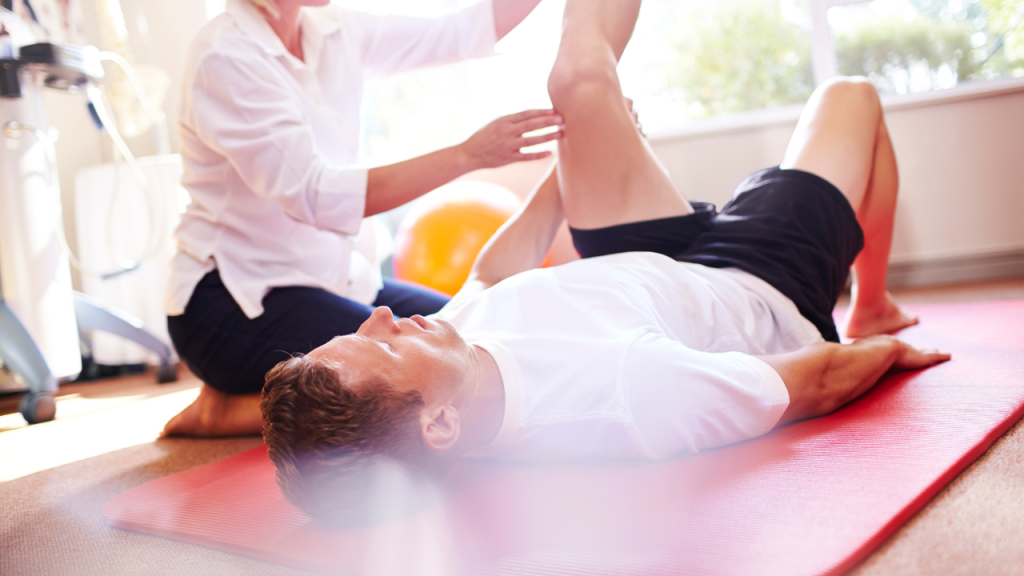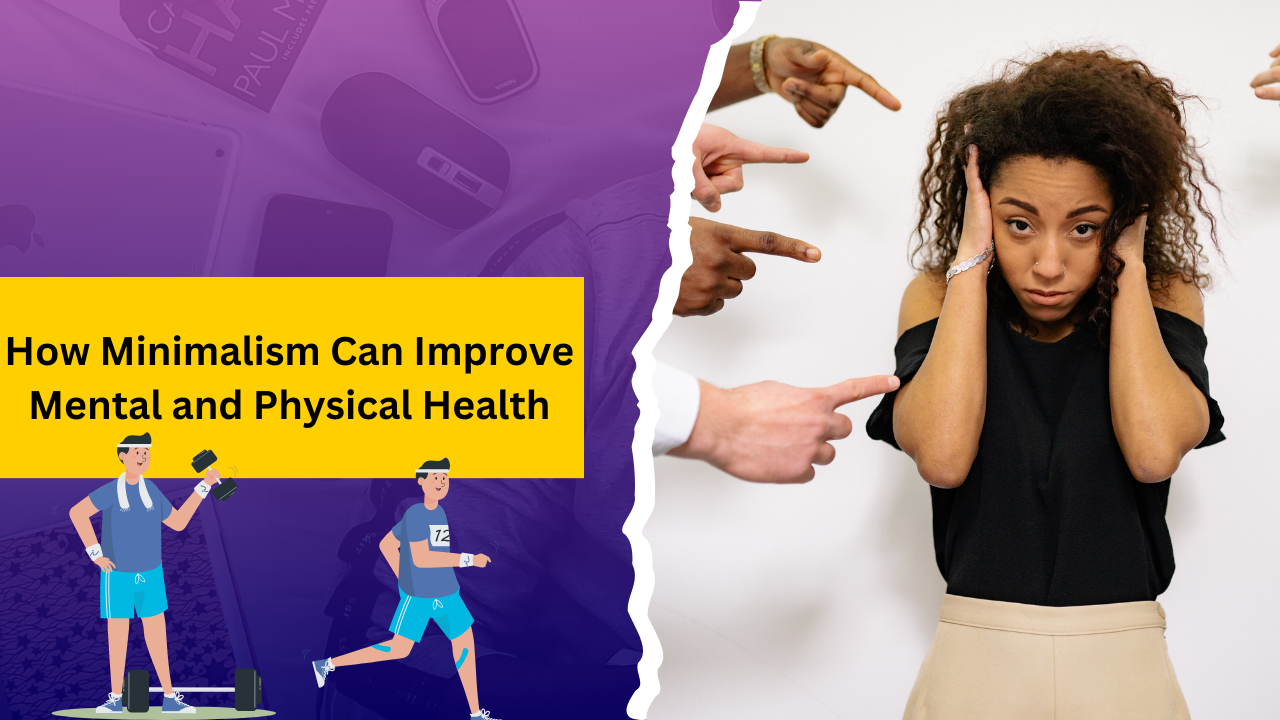Introduction
Have you ever felt overwhelmed by too much clutter, constant distractions, or an endless to-do list? In today’s fast-paced world, we are conditioned to believe that having more—more possessions, more commitments, more social media engagement—leads to a happier life. But in reality, the opposite is often true.
Minimalism is a lifestyle that promotes intentional living, focusing only on what truly adds value to your life while eliminating excess. It’s not just about owning fewer things; it extends to mental clarity, emotional well-being, and even physical health.
But how exactly does minimalism improve mental and physical health? In this article, we will explore the science-backed benefits of minimalism, provide practical tips, and share inspiring real-life transformations that demonstrate how adopting a minimalist lifestyle can lead to a healthier, happier life.
How Minimalism Can Improve Mental and Physical Health
1. Reduced Stress and Anxiety

Clutter isn’t just physical—it’s psychological. A messy environment can lead to feelings of stress and anxiety, making it harder to focus and feel at ease.
🔬 Scientific Evidence: A study from UCLA’s Center on Everyday Lives and Families (CELF) found that women with cluttered homes had significantly higher levels of cortisol, the stress hormone. The constant visual reminder of unfinished tasks or excessive belongings increases mental overload.
📌 Actionable Steps to Reduce Stress Through Minimalism:
- Declutter Your Space: Remove unused items, focusing on keeping only what serves a purpose.
- Practice the “One-Touch Rule”: When picking up an item, decide immediately if it should be kept, donated, or discarded.
- Embrace a Calm Aesthetic: Opt for neutral colors and simple designs in your living and workspaces to promote relaxation.
2. Enhanced Focus and Productivity
Do you ever feel like you can’t concentrate with too many distractions around you? Minimalism helps by eliminating unnecessary stimuli, allowing your brain to focus better.
📊 Studies Show:
A Princeton University Neuroscience Institute study found that clutter competes for your attention, making it harder to focus on important tasks. A clean, minimalist workspace enhances concentration and efficiency.
💡 Tips to Boost Productivity with Minimalism:
- Keep a Clutter-Free Desk: Store away unnecessary items and keep only essentials within reach.
- Limit Digital Distractions: Turn off non-essential notifications and use “Do Not Disturb” mode during deep work sessions.
- Practice the “Rule of Five”: Only keep five essential items on your desk for a distraction-free work environment.
3. Increased Emotional Well-Being

Minimalism encourages gratitude and contentment, shifting your focus from material possessions to meaningful experiences.
📌 Real-Life Example: Joshua Becker, author of The More of Less, describes how adopting minimalism helped his family spend more time together, leading to deeper relationships and increased happiness.
💬 Ask Yourself:
- Does owning more really make me happier?
- How much of my time and energy is spent maintaining things I don’t truly need?
How to Cultivate Emotional Well-Being Through Minimalism:
- Practice Gratitude: Focus on appreciating what you have rather than constantly seeking more.
- Adopt a Minimalist Mindset: Understand that happiness comes from experiences and relationships, not material things.
- Prioritize Quality Over Quantity: Invest in high-quality, meaningful possessions rather than accumulating cheap, unnecessary items.
The Physical Health Benefits of Minimalism
1. Better Sleep Quality
A cluttered bedroom can lead to restless sleep. The brain associates a messy environment with stress, making it harder to relax at bedtime.
🛏 Sleep Studies Confirm:
The National Sleep Foundation found that people who sleep in a clean, organized bedroom experience better sleep quality than those who sleep in cluttered spaces.
🌙 Minimalist Bedroom Tips for Better Sleep:
- Declutter Your Nightstand: Keep only essentials like a lamp, book, and water bottle.
- Opt for a Neutral Color Scheme: Light, soft colors promote a sense of calm.
- Limit Bedroom Electronics: Avoid screens before bedtime and remove unnecessary devices.
2. Encourages Healthier Eating Habits
Minimalism isn’t just about your environment—it applies to food choices too. A minimalist approach to eating means simplifying your meals, reducing processed foods, and focusing on whole, nourishing ingredients.
🍎 Scientific Backing:
A study published in the American Journal of Clinical Nutrition found that people who simplify their diet and plan meals mindfully are more likely to maintain a healthy weight and develop sustainable eating habits.
🥗 How to Eat Mindfully with Minimalism:
- Meal Prep in Advance: Stick to simple, nutrient-dense meals.
- Use Smaller Plates: Studies show that using smaller plates reduces overeating.
- Follow the “One-Ingredient Rule”: Eat foods with minimal ingredients to avoid processed junk.
3. Promotes an Active Lifestyle
A minimalist lifestyle helps free up time, allowing you to prioritize exercise and physical well-being. Instead of spending hours organizing belongings or shopping, minimalists use that time to stay active.
🏃♀️ Case Study:
Marie Kondo, the decluttering expert, reported that many people who simplify their lives naturally develop healthier habits, including exercise routines and outdoor activities.
💪 Minimalist Fitness Tips:
- Declutter Your Workout Routine: Stick to a few essential exercises like walking, squats, and push-ups instead of complex gym routines.
- Own Fewer but Quality Workout Clothes: Invest in a few high-quality workout outfits rather than accumulating too many.
- Spend More Time Outdoors: Replace indoor screen time with walking, hiking, or biking.
How to Start Living a Minimalist Lifestyle
1. Decluttering Your Space
Start small and work your way up.
🗂 Step-by-Step Guide:
- Choose One Area First: Begin with your closet, kitchen, or work desk.
- Use the “One-Year Rule”: If you haven’t used an item in the last year, donate or discard it.
- Declutter in Categories: Sort items into four piles: Keep, Donate, Recycle, Trash.
2. Digital Minimalism
Reducing screen time and digital clutter can significantly improve mental clarity and focus.
📱 Tips for a Minimalist Digital Life:
- Unsubscribe from Unnecessary Emails: Use services like Unroll.Me to declutter your inbox.
- Limit Social Media Time: Use apps like Freedom or Screen Time to track usage.
- Keep Only Essential Apps: Delete apps you rarely use to free up digital space.
3. Minimalist Mindset and Financial Freedom
Minimalism can also improve financial health by reducing unnecessary spending.
💰 How Spending Less Leads to More Freedom:
- Track Your Expenses: Cut out impulse purchases.
- Adopt the “One-In, One-Out” Rule: For every new item you bring in, remove one existing item.
- Prioritize Experiences Over Possessions: Spend money on travel, education, and hobbies rather than material things.
Conclusion
Minimalism is more than just a trend—it’s a powerful lifestyle shift that promotes mental clarity, emotional well-being, and physical health. By embracing simplicity, you can reduce stress, enhance productivity, improve sleep, eat healthier, and become more active.
Your Next Steps:
- Start with one small decluttering project today.
- Practice mindful consumption—buy less but choose better.
- Prioritize experiences and relationships over material possessions.
Are you ready to embrace minimalism for a healthier, happier life? Start small, stay consistent, and watch the transformation unfold!
Readmore….https://totalinsights.online/wp-admin/post.php?post=28773&action=edit

